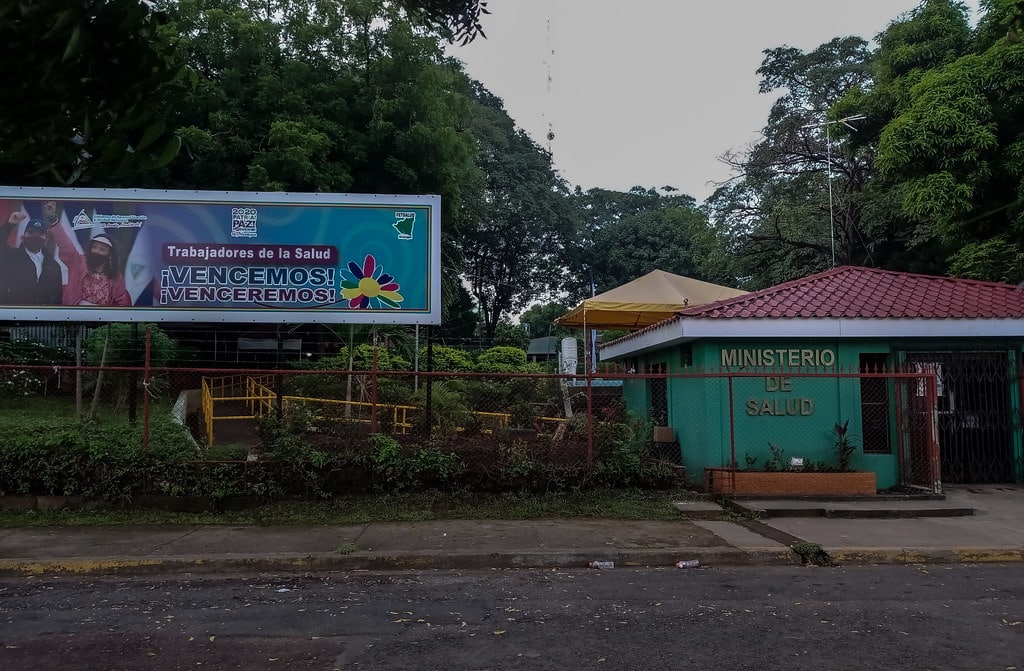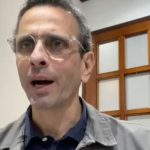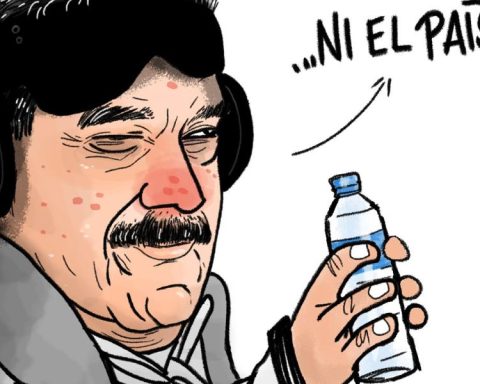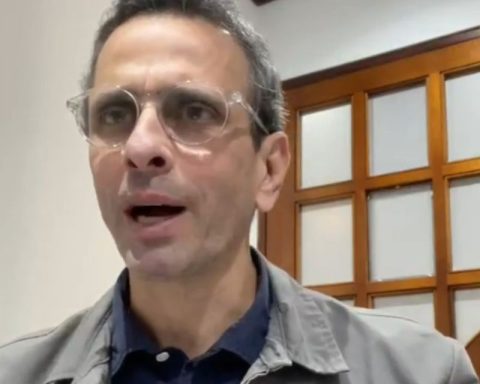Daniel Ortega’s regime executed 79.8% of the budget allocated to COVID-19 care until the last quarter of last year, reveals the 2021 budget execution report, published by the Ministry of Finance and Public Credit (MHCP). This under-execution left the population unprotected in the face of vaccine shortages and the impact of the second wave of the pandemic.
According to Treasury dataUntil September, they had executed 1,029.0 million of the 5,014.7 million córdobas available at that time, 20.5% of the “covid budget.” By the end of the year, the allocation for the pandemic had increased to 6,934.0 million córdobas and 94.2% had been executed. Between October and December, the State used 5538.7 million cordobas.
The speed of budget execution coincides with the purchase of vaccines against covid-19 and the intense campaign carried out by the Ministry of Health (Minsa) between October and December 2021, after Nicaraguans faced the second wave of covid-19 without having even 10% of the population immunized.
In 2021, the budget allocation for dealing with the pandemic multiplied by 9.3. Initially, 702.4 million córdobas had been approved, of these 408.7 million (58.2%) were assigned to the Ministry of Health (Minsa) and 214.4 million (30.5%) to the Ministry of Education (Minsa). However, during the year, 6,231.6 million córdobas were added in 2021, with the incorporation of external loans and donations.
With the adjustment that the “covid budget” the Minsa was assigned 4715.9 million cordobas, while the Mined, which was originally the second ministry with a significant allocation, was reduced to 38.3 million cordobas. The MHCP, which was initially assigned 40.1 million, was allocated 1,334.4 million córdobas; and to the National System for Disaster Prevention, Mitigation and Attention (Sinapred), which had nothing, they gave 106.1 million córdobas.
Nicaragua without vaccines in the first nine months
The figures from the budget execution report indicate that the State used 74.2% of the “covid budget” during the last quarter of the year, which was when the country was able to finalize the purchase of vaccines “anticovid”, and so the Minsa extended vaccination to the population over two years of age, who during the first nine months of the year waited their turn to be inoculated.
President Daniel Ortega justified Nicaragua’s having so few vaccines by blaming rich countries for hoarding biological ones. Meanwhile, he only held negotiations with his commercial ally Russia, while the rest of the Central American region guaranteed the purchase of vaccines with other producers.
The under-execution of the budget was admitted by the authorities in the periodic execution reports published by the MHCP in 2021. In the first semester report they admitted that, until then, it had occupied less than 10% of the budget that had already risen to 4193.8 million of cordobas.
Three months later, when the January-September 2021 Budget Execution Report was published, the execution of this budget had increased to 20.5%. Then, the population was already facing the second wave of covid-19, which was more aggressive and left more infected, hospitalized and deceased than the first that occurred in May 2020.
At that time, the percentage of vaccinated with two doses was 4.27%, the lowest in America. What triggered other countries, mainly Spain, to donate AstraZeneca vaccines through the Pan American Health Organization (PAHO).
500 million córdobas to buy “anticovid vaccines”
For the purchase of vaccines, the State created a special fund in October 2021 with which they would also buy medical supplies for vaccination days. The amount earmarked for this purpose was 700 million córdobas, of which 507,353,901 córdobas were used in the last quarter of the year, the report indicates.
The document does not detail how these 507 million córdobas were distributed, it is unknown how much the State paid Russia for the 4.4 million Spuntik V and Spuntik Light vaccines received last year or if there was any payment for the seven million doses of the vaccines Soberana 02 and Abdala who arrived from Cuba to the country.
The only known detail about vaccine purchases was revealed by the Government in December 2021, when they announced the purchase of 2.4 million AstraZeneca vaccines, valued at 15.8 million dollars, which were purchased through the PAHO Revolving Fund. . This purchase was financed with the first disbursement of a US$100 million loan granted by the Central American Bank for Economic Integration (CABEI).
According to the budget execution report, despite the lag in vaccination, in the last quarter of the year the Minsa managed to vaccinate 3,634,151 people, of these 1,362,982 were inoculated with the vaccines purchased with the Fund. A monitoring of CONFIDENTIALcalculates that Nicaragua currently has 15.4 million vaccines against covid-19, of this figure 6.6 million were donated due to the shortage of vaccines during 2021.
Investment for ICU after second wave
The Treasury details that the main sources of financing for the “covid budget” came in 66.8% from Treasury Income (4,389.9 million córdobas); 24.1% foreign loans (1,582.2 million córdobas); 7.8% of Income with Specific Destination (511.0 million córdobas); and 1.2% external donation (80.6 million córdobas)”.
They also explain that the MHCP allocated 9.5 million córdobas to expand and equip the epidemiological laboratories of the Silais de León, Rivas, Managua and Boaco.
23.5 million córdobas were also invested to improve the Intensive Care Units (ICU) of the departmental hospitals of Boaco, Chontales, Siuna, Madriz, Estelí and Managua. The latter exceeded their capacity during the second wave of covid-19, which occurred between August and October 2021, although the Government minimized it.
The emergency areas of the departmental hospitals of Jinotega, Masaya, Río San Juan, Nueva Guinea and the German Nicaraguan Hospital, in Managua, also received improvements and equipment for covid-19 care. 52.9 million córdobas were invested in this.

















